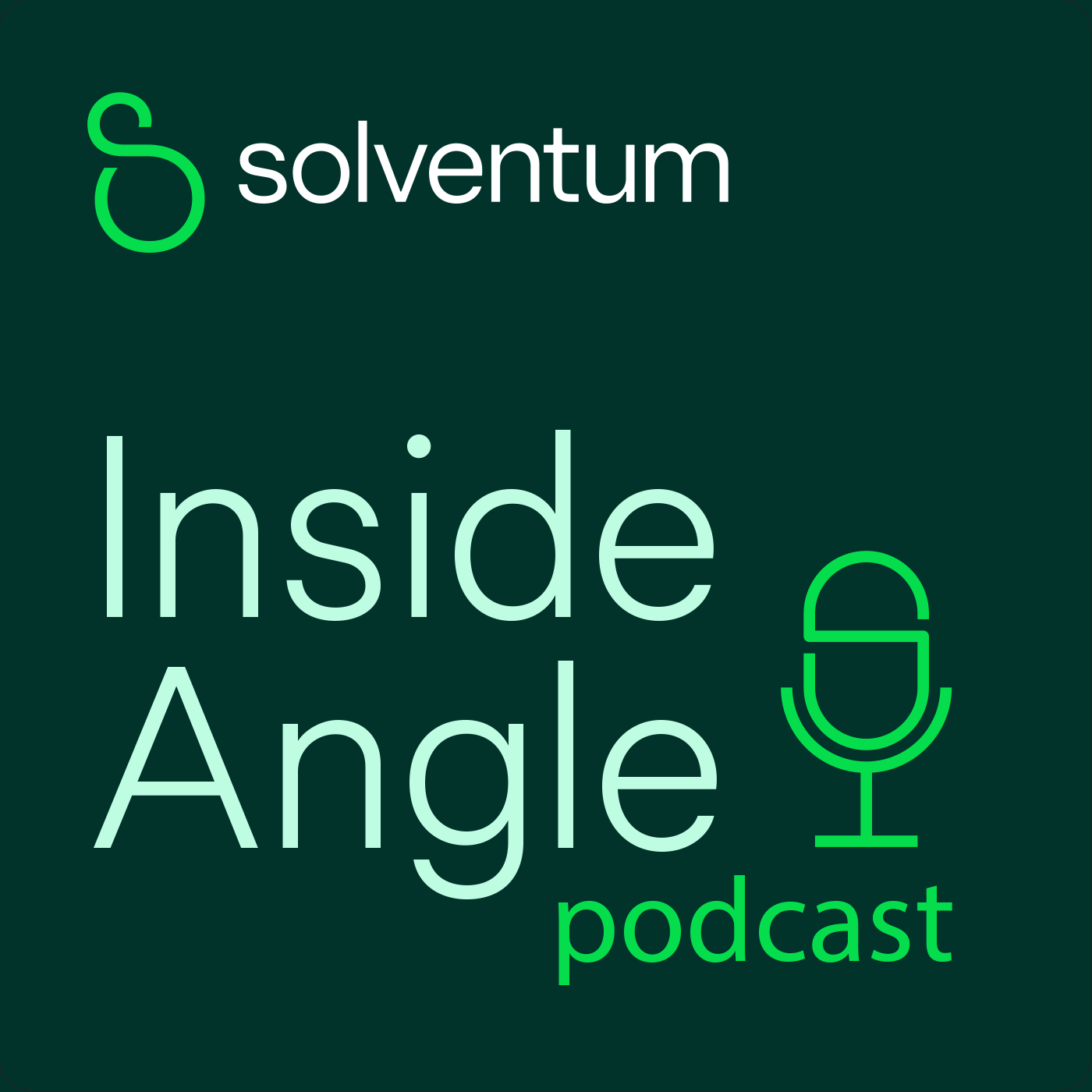Discover Inside Angle
Inside Angle

99 Episodes
Reverse
In this podcast, Michelle Badore and Patricia Saleeby explore the critical role of social and structural drivers of health (SDoH) in shaping health outcomes.
Podcast episode on autonomous coding and how AI is not just supporting coders, but mirroring human decision-making to deliver accurate, confident codes ready for billing—no human review required.
What does "value" really mean in healthcare– and who gets to define it? In this episode, Dr. Dimitri Dimitroyannis unpacks how patient-centered outcomes can reshape care delivery. He shares how standardized outcome tracking, technology and empathy are driving a shift from volume to value and gives real-world examples of how care is evolving to prioritize not just survival, but dignity, recovery and quality of life.
AI is revolutionizing medical coding—automating workflows so coders can focus on complex cases, denials prevention, and better patient outcomes.
This podcast details the healthcare experience of a boy in a ski accident from the perspective of his dad, who also happens to be a revenue cycle solutions specialist.
Elizabeth Matney and Dr. Travis Bias talk about redesigning the behavioral health system on the Inside Angle podcast.
Cybersecurity is vital in today's cloud-based world. Learn about the journey Solventum took to StateRAMP and FedRAMP certification.
Denials management should be proactive. Learn about an upstream approach.
Journeying through new technology can be difficult, but new tools can increase care quality and reduce physician burnout.
Artificial intelligence and ambient solutions are on their way to transforming the way we provide healthcare. The conundrum? Using these tools for patient care while ensuring the security of patient data in the electronic health record (EHR). So, how do we advance our health system safely? CIO of Brooke Army Medical Center Chani Cordero gives her take.
Physician burnout is a global concern, and health systems are searching for innovative ways to address clinician pain points. Emirates Health System (EHS) worked alongside physicians to identify solutions aimed at reducing burnout and administrative tasks. Join the global movement toward reducing physician burnout and find out more about the EHS technology implementation project from Dr. Yaser Abuhajjaj.
Sepsis denials can be a challenge for organizations, but education can address denials and improve patient care.
Physician burnout is overwhelming clinicians, but ambient technology can help create time to care.
What exactly does autonomous coding mean and how is it different from tools within the electronic health record (EHR)? Dive into the definition of coding automation with Diana Ortiz as she explains the ways EHRs and coding solutions work together to achieve complete and compliant documentation.
You may be familiar with social drivers of health (SDoH), but do you know how they are documented and shared as part of the medical record? Can sharing SDoH data ultimately improve care and close health equity gaps? Get answers from Lauren Riplinger, JD, and Priya Bathija as they describe what some health systems are doing to record SDoH and ideas for how we can do even more.
How can we infuse health equity into a system that wasn't originally created with that goal in mind? Dr. Melissa Clarke sat down with Dr. Aditi Mallick, acting director of the Centers for Medicare & Medicaid Services (CMS) Office of Minority Health (OMH) to discuss social drivers of health, risk adjustment and other factors that impact health equity. Discover CMS models that are currently being employed to advance health equity and dive into new models coming down the pipeline.
Artificial intelligence (AI) tools have revealed a world of ideas for new devices, vaccines and other inventions, but are those creations unpatentable? How can humans work collaboratively with AI to create an effective inventive system? Our guest Robert Plotkin, author and patent attorney at Blueshift IP, dives into the nuances surrounding AI and invention and how these tools are revolutionizing discovery as we know it.
There is no shortage of burnout in the health care industry today, but "ridiculous optimist" Dr. David Butler thinks there is hope on the horizon. He expands on the concept of the "digital black bag" and how generative artificial intelligence and emerging technologies like ChatGPT can increase health care access, decrease physician burnout and improve health outcomes.
Medicare Advantage has been around for decades, but how much do you know about this historic program? Learn directly from one of the driving forces behind Medicare Advantage, Tom Scully, former administrator of the Centers for Medicare & Medicaid Services (CMS). He dives into the history of the program, how health plans have evolved over time and how value-based care models will shape the future of health care.





